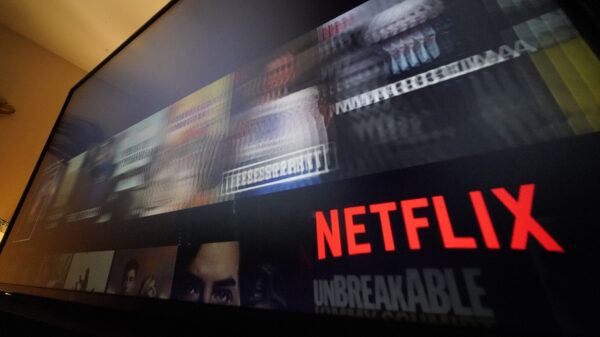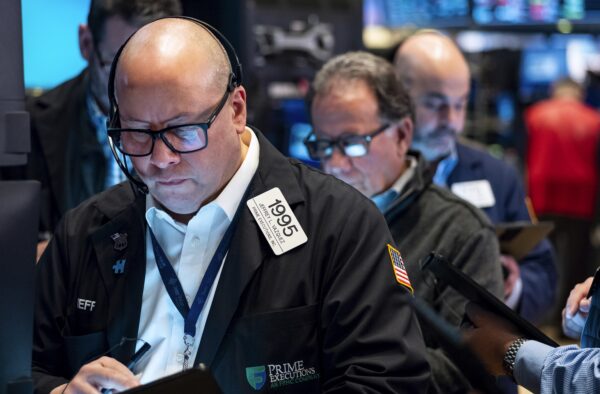ANALYSIS: From Bud Light to Disney, How Left-Wing Causes Are Infiltrating Corporate Advertising
Anheuser-Busch’s controversial sponsorship of trans influencer Dylan Mulvaney in an advertising campaign for its beer brand Bud Light is just the most recent example of corporations championing progressive causes—and then having to backpedal when they discover that the message proves divisive. In an attempt to quell a backlash among Bud Light drinkers, Anheuser-Busch CEO Brendan Whitworth stated on Friday: “We never intended to be part of a discussion that divides people. We are in the business of bringing people together over a beer.” Anonymous sources within the company claimed that “no one at a senior level” was aware of the promotional campaign. Whitworth’s statement echoes the words of Disney CEO Bob Iger in November 2022, following Disney’s vow to fight a parents’ rights law in Florida that barred the teaching of sexual topics in school for children in third grade or younger. While speaking to employees shortly after taking the helm from fired CEO Bob Chapek, who made the decision to fight the Florida law, Iger said, “I was sorry to see us dragged into that battle, and I have no idea exactly what its ramifications are.” Other corporations who have gone down this path include fashion brands company Balenciaga, which published ads showing pre-school-age girls posed alongside sexual tools and messages in November 2022. In response to a public backlash, Balenciaga issued this statement: “We would like to address the controversies surrounding our recent ad campaigns. We strongly condemn child abuse; it was never our intent to include it in the narrative.” Bud Light beer cans sit on a table in right field during the Baltimore Orioles and Toronto Blue Jays game at Oriole Park at Camden Yards in Baltimore, Md., on Sept. 19, 2019. (Rob Carr/Getty Images) These companies followed in the political footsteps of Major League Baseball, Delta Airlines, and Coca-Cola, who in 2021 fought a voter-ID law in Georgia, alleging that it amounted to racist voter suppression. In the wake of the controversy, a Rasmussen poll found that 37 percent of responders said they were less likely to buy Coca-Cola products, while 25 percent said they were more likely, because of the company’s political stance, which caused the nickname “Woke-a-Cola” to go viral. According to a 2022 Gallup poll, 79 percent of voters, including a majority of both Democrats and Republicans, support voter ID laws. “At this point, it’s clear that corporations are going to be risking customers, employee engagement, and relationships with shareholders if they decide to drive a particular political agenda with their brand and resources,” Jeremy Tedesco, senior counsel at the Alliance Defending Freedom (ADF). “There are definitely negative consequences to businesses continuing to go down this path of choosing one side or another in these political debates.” A 360-Degree Pressure Campaign Progressives often pressure CEOs to steer companies into the political arena through a system of internal and external pressure. Activist campaigns from employees and outside nonprofits ultimately swayed Chapek to oppose the Florida parents’ rights law, despite his initial hesitation. Elsewhere, employee and nonprofit campaigns at Netflix attempted to pressure its executives to cancel comedian Dave Chapelle’s show, “The Closer,” claiming that his jokes offended transgender people. The nonprofit organization Gay & Lesbian Alliance Against Defamation (GLAAD) stated: “Netflix has a policy that content ‘designed to incite hate or violence’ is not allowed on the platform, but we all know that anti-LGBTQ content does exactly that. While Netflix is home to groundbreaking LGBTQ stories, now is the time for Netflix executives to listen to LGBTQ employees, industry leaders, and audiences and commit to living up to their own standards.” The Netflix screen on a television in Pittsburgh on Oct. 17, 2022. (Gene J. Puskar/AP Photo) Ultimately, Netflix refused to go along, and co-CEO Ted Sarandos responded: “Chappelle is one of the most popular stand-up comedians today, and we have a long-standing deal with him. His last special, ‘Sticks & Stones,’ also controversial, is our most watched, stickiest, and most award-winning stand-up special to date.” The Human Rights Campaign, which advocates for LGBTQ+ rights, publishes a Corporate Equality Index (CEI), which rates companies’ compliance with its views. In addition, corporate rating agencies, including Standard & Poors and Morningstar, rate companies according to their compliance with environmental, social and governance (ESG) criteria. And many large institutional asset managers and pension funds, which collectively own 70 percent of corporate shares, have pledged to support ESG goals such as reducing fossil fuels and supporting racial equity. “They have a 360-degree pressure campaign to push these companies further and further left, including on the positions they take on contentious political issues,” Tedesco said. The C

Anheuser-Busch’s controversial sponsorship of trans influencer Dylan Mulvaney in an advertising campaign for its beer brand Bud Light is just the most recent example of corporations championing progressive causes—and then having to backpedal when they discover that the message proves divisive.
In an attempt to quell a backlash among Bud Light drinkers, Anheuser-Busch CEO Brendan Whitworth stated on Friday: “We never intended to be part of a discussion that divides people. We are in the business of bringing people together over a beer.” Anonymous sources within the company claimed that “no one at a senior level” was aware of the promotional campaign.
Whitworth’s statement echoes the words of Disney CEO Bob Iger in November 2022, following Disney’s vow to fight a parents’ rights law in Florida that barred the teaching of sexual topics in school for children in third grade or younger. While speaking to employees shortly after taking the helm from fired CEO Bob Chapek, who made the decision to fight the Florida law, Iger said, “I was sorry to see us dragged into that battle, and I have no idea exactly what its ramifications are.”
Other corporations who have gone down this path include fashion brands company Balenciaga, which published ads showing pre-school-age girls posed alongside sexual tools and messages in November 2022. In response to a public backlash, Balenciaga issued this statement: “We would like to address the controversies surrounding our recent ad campaigns. We strongly condemn child abuse; it was never our intent to include it in the narrative.”

 Bud Light beer cans sit on a table in right field during the Baltimore Orioles and Toronto Blue Jays game at Oriole Park at Camden Yards in Baltimore, Md., on Sept. 19, 2019. (Rob Carr/Getty Images)
Bud Light beer cans sit on a table in right field during the Baltimore Orioles and Toronto Blue Jays game at Oriole Park at Camden Yards in Baltimore, Md., on Sept. 19, 2019. (Rob Carr/Getty Images)
These companies followed in the political footsteps of Major League Baseball, Delta Airlines, and Coca-Cola, who in 2021 fought a voter-ID law in Georgia, alleging that it amounted to racist voter suppression. In the wake of the controversy, a Rasmussen poll found that 37 percent of responders said they were less likely to buy Coca-Cola products, while 25 percent said they were more likely, because of the company’s political stance, which caused the nickname “Woke-a-Cola” to go viral. According to a 2022 Gallup poll, 79 percent of voters, including a majority of both Democrats and Republicans, support voter ID laws.
“At this point, it’s clear that corporations are going to be risking customers, employee engagement, and relationships with shareholders if they decide to drive a particular political agenda with their brand and resources,” Jeremy Tedesco, senior counsel at the Alliance Defending Freedom (ADF). “There are definitely negative consequences to businesses continuing to go down this path of choosing one side or another in these political debates.”
A 360-Degree Pressure Campaign
Progressives often pressure CEOs to steer companies into the political arena through a system of internal and external pressure. Activist campaigns from employees and outside nonprofits ultimately swayed Chapek to oppose the Florida parents’ rights law, despite his initial hesitation.
Elsewhere, employee and nonprofit campaigns at Netflix attempted to pressure its executives to cancel comedian Dave Chapelle’s show, “The Closer,” claiming that his jokes offended transgender people.
The nonprofit organization Gay & Lesbian Alliance Against Defamation (GLAAD) stated: “Netflix has a policy that content ‘designed to incite hate or violence’ is not allowed on the platform, but we all know that anti-LGBTQ content does exactly that. While Netflix is home to groundbreaking LGBTQ stories, now is the time for Netflix executives to listen to LGBTQ employees, industry leaders, and audiences and commit to living up to their own standards.”
 The Netflix screen on a television in Pittsburgh on Oct. 17, 2022. (Gene J. Puskar/AP Photo)
The Netflix screen on a television in Pittsburgh on Oct. 17, 2022. (Gene J. Puskar/AP Photo)
Ultimately, Netflix refused to go along, and co-CEO Ted Sarandos responded: “Chappelle is one of the most popular stand-up comedians today, and we have a long-standing deal with him. His last special, ‘Sticks & Stones,’ also controversial, is our most watched, stickiest, and most award-winning stand-up special to date.”
The Human Rights Campaign, which advocates for LGBTQ+ rights, publishes a Corporate Equality Index (CEI), which rates companies’ compliance with its views. In addition, corporate rating agencies, including Standard & Poors and Morningstar, rate companies according to their compliance with environmental, social and governance (ESG) criteria. And many large institutional asset managers and pension funds, which collectively own 70 percent of corporate shares, have pledged to support ESG goals such as reducing fossil fuels and supporting racial equity.
“They have a 360-degree pressure campaign to push these companies further and further left, including on the positions they take on contentious political issues,” Tedesco said. The CEI index includes criteria like corporate advertising and messaging, he said. To get a high score, “You have to essentially cede control over your marketing to external groups that have no interest in whether your company is successful, whether you’re alienating your customers or your employees.”
Shareholders and Employees Increasingly Uncomfortable With Political Agendas
Shareholders are beginning to express concerns about the politicization of companies. Two recent shareholder actions, charging political and religious discrimination, were green-lit by the Securities and Exchange Commission (SEC) to go to a shareholder vote at JPMorgan Chase and PayPal. While conservatives charge that the SEC rarely allows right-leaning proposals to go to a vote, but often permits left-leaning proposals, these two cases proved a rare exception.
“The SEC really controls what shareholder resolutions appear on the proxy statements,” Tedesco said. “What they’ve been doing over the last 10–15 years is opening the floodgates for left-leaning shareholder activism, but throttling conservative shareholders from acting as some kind of counterweight. And we pointed that out in our filing with the SEC, related to the JPMorgan Chase proposal, and said, ‘You’re risking a First Amendment lawsuit over viewpoint discrimination if you continue to allow all these left-leaning shareholder resolutions but deny conservative ones that deal with the same issues.’”
 Traders work on the floor at the New York Stock Exchange in New York on March 13, 2023. (Craig Ruttle/AP Photo)
Traders work on the floor at the New York Stock Exchange in New York on March 13, 2023. (Craig Ruttle/AP Photo)
Companies’ political initiatives appear to be off-putting not only for conservative customers and shareholders but also for employees as well.
A study by Vanessa Burbano, a professor at Columbia Business School, titled, “The Demotivating Effects of Communicating a Social-Political Stance,” found that there was little upside for companies that take on political causes from the perspective of their employees. The report cited “strong evidence that communicating a social-political stance with which employees disagree has a demotivating effect,” while “communicating a social-political stance with which employees agree has no (statistically significant) motivating effect.”
An Ipsos survey in March reported that while corporate executives become ever more comfortable about imposing their political views on their companies, two-thirds of employees surveyed said they feared expressing their political or religious views at work.
Disney’s stance in favor of sex education in elementary schools prompted an anonymous letter from employees that stated: “The Walt Disney Company has come to be an increasingly uncomfortable place to work for those of us whose political and religious views are not explicitly progressive. We watch quietly as our beliefs come under attack from our own employer, and we frequently see those who share our opinions condemned as villains by our own leadership.”
An alternative path that corporate executives who want to venture into politics should consider, Tedesco said, is “just stay out of it. Serve the interests and needs of everybody who wants to be a consumer of your products, or an employee in your organization, or a shareholder of your business.”












